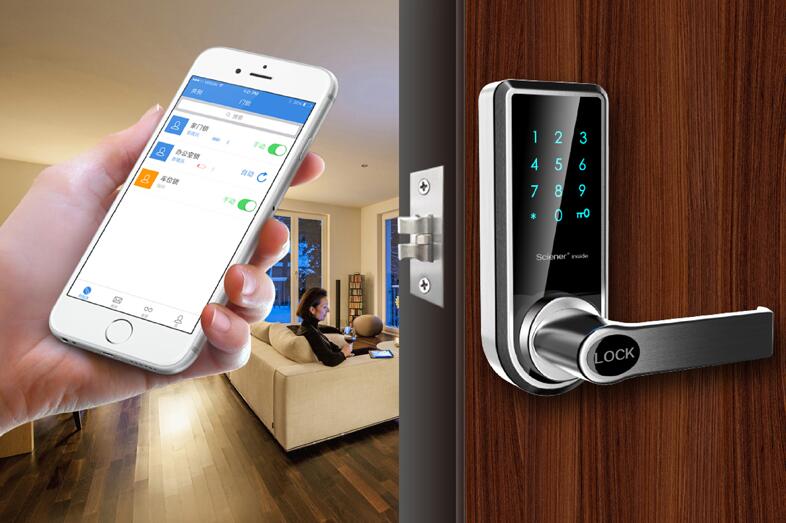In the world of home security, lock certification systems play a crucial role in ensuring that our homes are protected from unauthorized access. Whether you’re a homeowner or a renter, understanding these systems is essential for making informed decisions about the locks you choose to install. In this article, we will delve into the intricacies of lock certification, providing you with a comprehensive guide to secure your home environment effectively.

What are Lock Certification Systems?
Lock certification systems are standardized processes that evaluate and grade the security features of locks. These certifications provide consumers with an assurance of quality and security, enabling them to choose locks that meet specific safety standards. The primary goal of these systems is to ensure that locks are reliable, tamper-proof, and capable of withstanding various forms of attack.
The Importance of Understanding Lock Certifications
Understanding lock certifications is vital for several reasons. Firstly, it helps homeowners and renters select locks that align with their security needs. Secondly, it ensures that the chosen locks have undergone rigorous testing and meet industry standards. Lastly, certified locks often come with warranties and support from manufacturers, offering peace of mind to users.
Types of Lock Certification Systems
There are several types of lock certification systems, each with its own set of standards and testing procedures. Some of the most well-known systems include:
ANSI/BHMA Certification
The American National Standards Institute (ANSI) and Builders Hardware Manufacturers Association (BHMA) are responsible for certifying locks in the United States. Their certification process involves rigorous testing for durability, strength, and security. Locks are graded on a scale from Grade 1 to Grade 3, with Grade 1 being the highest level of security.
EN 12209 Certification
In Europe, the EN 12209 certification is a widely recognized standard for lock security. This certification involves testing locks against a series of criteria, including resistance to drilling, picking, and physical attacks. Locks that meet the EN 12209 standards are deemed highly secure and reliable.
How Lock Certification Systems Impact Home Security
Lock certification systems significantly impact home security by providing a benchmark for evaluating lock quality. Certified locks are more likely to deter burglars and withstand various forms of attack, ensuring that your home remains protected. Additionally, these systems encourage manufacturers to innovate and improve their products, leading to the development of more advanced security solutions.
Choosing the Right Certified Lock for Your Home
When selecting a certified lock for your home, it’s essential to consider several factors, including the level of security you require, the type of lock you prefer, and your budget. Research different certification systems and understand their grading criteria to make an informed decision.
Common Misconceptions About Lock Certifications
There are several misconceptions surrounding lock certifications that homeowners and renters should be aware of. One common misconception is that all certified locks offer the same level of security. In reality, the security level varies based on the certification grade and the specific lock model. Another misconception is that certified locks are immune to all forms of attack. While they are more resistant, no lock is entirely foolproof.
Enhancing Home Security Beyond Certified Locks
While certified locks are an essential component of home security, additional measures can further enhance safety. Consider installing security cameras, alarm systems, and motion-sensor lighting to create a comprehensive security plan. Regular maintenance and updates to your security system are also crucial in ensuring long-term protection.
The Future of Lock Certification Systems
As technology continues to advance, lock certification systems are expected to evolve as well. The integration of smart technology into locks is becoming increasingly common, leading to the development of new certification standards that address cybersecurity concerns. Homeowners and renters should stay informed about these advancements to make educated decisions about their security needs.
Staying Informed About Lock Security Trends
To stay informed about the latest trends in lock security, consider subscribing to industry publications, attending security expos, and consulting with professional locksmiths. Staying updated on new technologies and certification standards will enable you to maintain a secure home environment.
Conclusion
In conclusion, understanding lock certification systems is crucial for anyone looking to enhance their home security. These systems provide valuable information about the quality and reliability of locks, allowing consumers to make informed choices. As the security landscape continues to evolve, staying informed and proactive will ensure that your home remains a safe haven for you and your loved ones.

FAQs
1. What is the difference between ANSI and EN 12209 certifications?
ANSI is a certification standard used in the United States, while EN 12209 is used in Europe. Both systems have different testing criteria and grading scales, but they share the goal of ensuring lock reliability and security.
2. Can certified locks be picked?
While certified locks are designed to be more resistant to picking, no lock is entirely pick-proof. However, they are generally more challenging to pick than non-certified locks.
3. How often should I update my home security system?
It’s recommended to review and update your home security system every few years or whenever there is a significant advancement in security technology. Regular maintenance and updates will help ensure optimal protection.
This article contains affiliate links. We may earn a commission at no extra cost to you.





